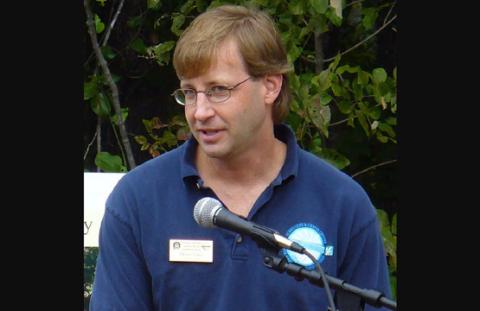
Horry County Stormwater Management
I was drawn to natural resource management because of my interest in the sciences and conservation of the natural world.
Education
- B.S., Environmental Science, University of Virginia
- M.S., Marine Resource Management, Oregon State University
Salary
$40,000 - $60,000
Contact
What is your current job and what does it entail?
I am a watershed planner for Horry County in South Carolina. A watershed planner works strategically at a landscape scale to balance the integrity of natural resources with the demands of a developing society. Often, the watershed planner must be well versed in many subjects to work as a liaison between professionals in various disciplines and agencies. Working within the stormwater discipline, I work on land use planning issues, pollution reduction strategies during and after development, water quality data analysis, outreach and education of public and professionals, and managing special demonstration projects to promote new initiatives and technology. I also help to manage compliance with the county's stormwater permit issued by the state. At the local government level, I also work with individual citizens troubleshooting various concerns and complaints about water quality and drainage.
What was the key factor in your career decision?
I did not set out to work in the stormwater discipline specifically. I was drawn to natural resource management because of my interest in the sciences and conservation of the natural world. While I started in basic scientific research, I quickly became interested in how that knowledge from research can be used to make sound management decisions.
What do like most about your career?
A watershed planner is involved in many different projects and initiatives, so I like the variation in duties and activities.
What do you like least about your career?
In the United States, natural resource management is often pitted against business development. Often, natural resources get less consideration by the general public. It can be frustrating to work hard at something that many others do not find important.
What do you do to relax?
I exercise regularly and watch sports. I like to read both fiction and nonfiction. I enjoy boating on the cypress-lined Waccamaw River with my family.
Who are your heroes/heroines?
1) Ernest Shackleton, polar explorer -- Shackleton was an intrepid and persistent explorer and a problem solver; he also was dedicated to scientific documentation during his voyages. 2) Charles Darwin, naturalist -- Darwin was committed to learning about the natural environment and gave us the foundations for the discipline of ecology. 3) John Muir, preservationist -- Muir strongly advocated for the intrinsic value and protection of the natural world in human society. 4) Gifford Pinchot, conservationist -- As a counterpoint to Muir, Pinchot advocated for the sustainable use and conservation of natural resources during development of human society.
What advice would you give a student who expressed an interest in pursuing a career in your field?
Do well in school and pursue your interests. Get practical job experience, even if it means volunteering. Internships are great opportunities to try various disciplines prior to choosing a major or school. Don't specialize too early -- keep your options open. Your career is likely to be a winding road rather than a straight path, and some experiences in your past may come in handy in the future. Don't try to predict the job market ; things will change over time but it is difficult to know how. Build a solid foundation and a good work ethic and show your enthusiasm in interviews for school/work.
Are career opportunities in your field increasing or decreasing and why?
Within the stormwater discipline, opportunities are increasing. Stormwater permitting requirements for water quality protection are becoming more stringent, so more resources will have to be committed to complying with those regulations. There is also an increasing need for natural resource management professionals that are versed in many subjects that can serve as a liaison to integrate information.
What will you be doing 10 years from today?
I would like to return to a role that is more active in conservation, perhaps with a non-profit conservation organization.

